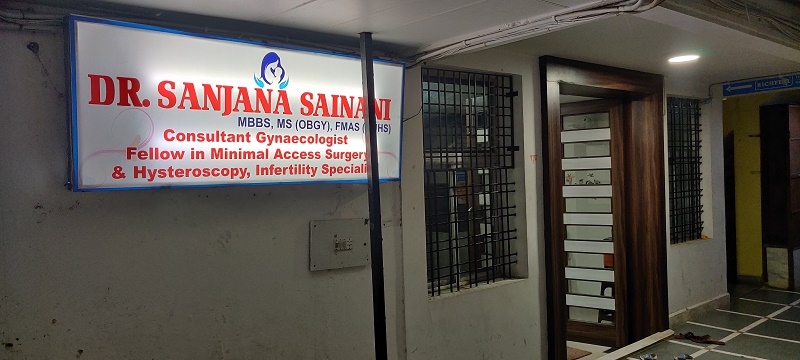Enquire Now
Gynec Hospital In Nagpur is not a commonly used or recognized term in the medical field. However, I can provide information about medical facilities related to gynecology.
Gynecology Clinic or Office: Most gynecological care is provided in outpatient settings, such as gynecology clinics or private gynecologist’s offices. These facilities offer a wide range of services related to women’s reproductive health, including routine check-ups, Pap smears, contraception counseling.thus, treatment for gynecological conditions.

Gynec Hospital care
Gynecological Surgery: Thus, Hospitals often have surgical facilities where gynecological surgeries can be performed.Once, Common gynecological procedures conducted in hospitals include hysterectomy (removal of the uterus), myomectomy (removal of uterine fibroids), ovarian cyst removal, and surgeries to treat conditions similarly, endometriosis or pelvic organ prolapse.
Labor and Delivery: Hospitals are equipped to provide maternity care, including labor and delivery services. Obstetricians and maternity care teams in the hospital assist with childbirth and postpartum care.
Emergency Gynecological Care: Firstly, In case of gynecological emergencies such as ectopic pregnancies, severe pelvic pain, or excessive bleeding, individuals may seek care in a hospital’s emergency department.
Treatment for Gynecological Conditions: Hospitals provide comprehensive care for various gynecological conditions, including pelvic inflammatory disease (PID), uterine infections, sexually transmitted infections (STIs), and more.
Cancer Treatment: Thus, Specialized cancer centers within hospitals offer diagnosis, treatment, and management of gynecological cancers such as ovarian cancer, cervical cancer, and uterine cancer. This may include surgery, chemotherapy, radiation therapy, and palliative care.
Reproductive Medicine: Once, Some hospitals have reproductive medicine centers that focus on fertility treatments. assisted reproductive technologies (ART), such as in vitro fertilization (IVF) and intrauterine insemination (IUI).
Gynecological hospital Services
Routine Gynecological Check-Ups: Regular preventive care appointments with gynecologists for pelvic exams, breast exams, and Pap smears to screen for cervical cancer and other gynecological conditions.
Maternity Care: Comprehensive care for pregnant women, including prenatal visits, fetal monitoring, and labor and delivery services. Hospitals typically have labor and delivery units where women can give birth with the assistance of obstetricians and maternity care teams.
Gynecological Surgery: Hospitals have surgical facilities for performing various gynecological procedures, including:
- Hysterectomy (removal of the uterus)
- Myomectomy (removal of uterine fibroids)
- Ovarian cystectomy (removal of ovarian cysts)
- Laparoscopic surgery for endometriosis, ovarian conditions, and tubal ligation
Management of Gynecological Conditions: Diagnosis and treatment of gynecological conditions such as:
- Endometriosis
- Polycystic ovary syndrome (PCOS)
- Fibroids
- Pelvic inflammatory disease (PID)
- Vaginal infections
- Abnormal uterine bleeding
- Urinary incontinence
Treatment for Gynecological Cancers: Specialized cancer centers within gynecological hospitals provide diagnosis, treatment, and management of gynecological cancers, including:
- Ovarian cancer
- Cervical cancer
- Uterine cancer
- Vulvar cancer
- Vaginal cancer
other Services
- Reproductive Medicine and Fertility Services: Thus, Some hospitals offer reproductive medicine services, including fertility evaluations, in vitro fertilization (IVF), intrauterine insemination (IUI), egg freezing, and treatment for infertility.
- Diagnostic Services: Once, Gynecological hospitals provide a range of diagnostic services, such as:
- Ultrasound imaging
- Hysteroscopy and laparoscopy
- Colposcopy (for abnormal Pap smear follow-up)
- Biopsies for abnormal uterine bleeding or suspicious growths
- Family Planning and Contraception: Firstly, Counseling and provision of various contraception options, including birth control pills, intrauterine devices (IUDs), contraceptive implants, and sterilization procedures like tubal ligation.
- Menopause Management: Thus, Guidance and care for women experiencing perimenopause and menopause, including hormone replacement therapy (HRT) and symptom management.
- Pelvic Health and Urogynecology: Firstly, Evaluation and treatment of pelvic floor disorders, such as pelvic organ prolapse and urinary incontinence, often involving specialized urogynecologists.
- Sexual Health and STI Testing: Once, Screening and treatment for sexually transmitted infections (STIs) and sexual health education.
- Pelvic Pain Management: Evaluation and treatment of chronic pelvic pain conditions, including endometriosis and pelvic inflammatory disease.
- Preventive Vaccinations: Administration of vaccines such as the HPV vaccine to prevent cervical cancer and the Tdap vaccine during pregnancy for tetanus, diphtheria, and pertussis prevention.
- Psychological and Emotional Support: Some gynecological hospitals offer counseling and support services to address the emotional and psychological aspects of women’s health, particularly for patients dealing with infertility, cancer, or other complex medical issues.
